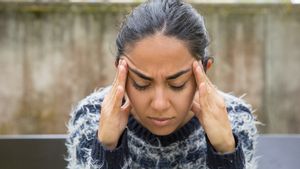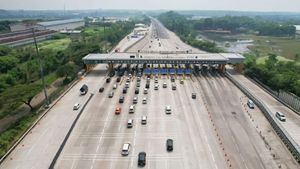YOGYAKARTA - suddenly stomach pain, especially after eating, needs to be watched out for. Because it turns out that it's not only caused by digestive system disorders. More than that, here's a list of causes of stomach pain after eating or eating your favorite foods.
"When stomach acid irritates the concavity layer, stomach loss and pain can be experienced," explained California-based gastroenterologist Ashkan Farhadi, MD.
You are more likely to suffer from GERD if you tend to overeat or like spicy food, said Farhadi. If you feel you are struggling with GERD, take note of doctor Farhadi's advice. Reduce spicy food, drink drinks contain caffeine and alcohol, and drink antacidated drugs sold in pharmacies to treat symptoms.
Irritable bowl syndrome (IBS) or known as colon irritation is an intestinal disorder that causes several symptoms. Among other things, pain in the stomach, fart, diarrhea, and constipation. If you feel stomach pain after eating and experiencing constipation or diarrhea, it's a good idea to have a doctor for an IBS test.
Illustration of the cause of stomach pain after eating (Freepik/8photo)
A body that is prone to foods that contain gluten, can be due to celiac disease. One of the signs is stomach pain after you eat foods with gluten. In certain conditions, someone who is not celiac may also experience gluten intolerance. The body has difficulty digesting gluten so that the stomach hurts after consuming it.
"If you feel your stomach hurts a lot after eating and dealing with weight loss, anemia, vomiting, difficulty swallowing, or finding blood on the feces, it could be a sign of developing ulcers," explains Scott Gabbard, MD., a gastroenterologist at Cleveland Clinic.
Mag because of wounds that develop in the cavities, stomach, or small intestines. Usually, ulcers can be treated with acid depletion and antibiotics. But it's important to get a doctor before taking the drug.
GastroPAresis is also known as slow stomach', which can cause paralysis in part of the stomach muscle and digestion do not work properly. Obviously gastroenterologist reported by Womens Health, Thursday, November 10, due to gastropy, food remains in your stomach longer. As a result, the stomach cannot accommodate and digest more food you eat. It can then trigger cramps and/or seizures in the stomach. It can also trigger nausea or vomiting.
Excessive growth of bacteria in the small intestines, or called SIBO (small integrated bathial overgrowth), causes stomach bloating, diarrhea, and stomach pain after eating. This condition is triggered by poor digestion. The risk factor of SIBO, can be experienced by people with advanced age, having surgery before experiencing it, autoimmune disorders, or chronic constipation.
Generally, ulcerative colitis affects the colon. Ulserativa colsitis is another type of inflammation of the intestine and causes small ulcers throughout the large intestine or rectum. Usually people who experience ulcerative colitis will experience pain that develops over time. At first, from stomach pain, but develops pain in the rectum and experience diarrhea to bleeding.
After eating stomach pain due to ulcerative colitis can be exacerbated by high foods of sugar or high-fat saturated meat and other foods such as cakes, butter, coconut oil, and▁hatio. Because the exact cause of ulcerative colitis is not known for sure, then you need to go to a doctor if you have symptoms above.
The English, Chinese, Japanese, Arabic, and French versions are automatically generated by the AI. So there may still be inaccuracies in translating, please always see Indonesian as our main language. (system supported by DigitalSiber.id)













